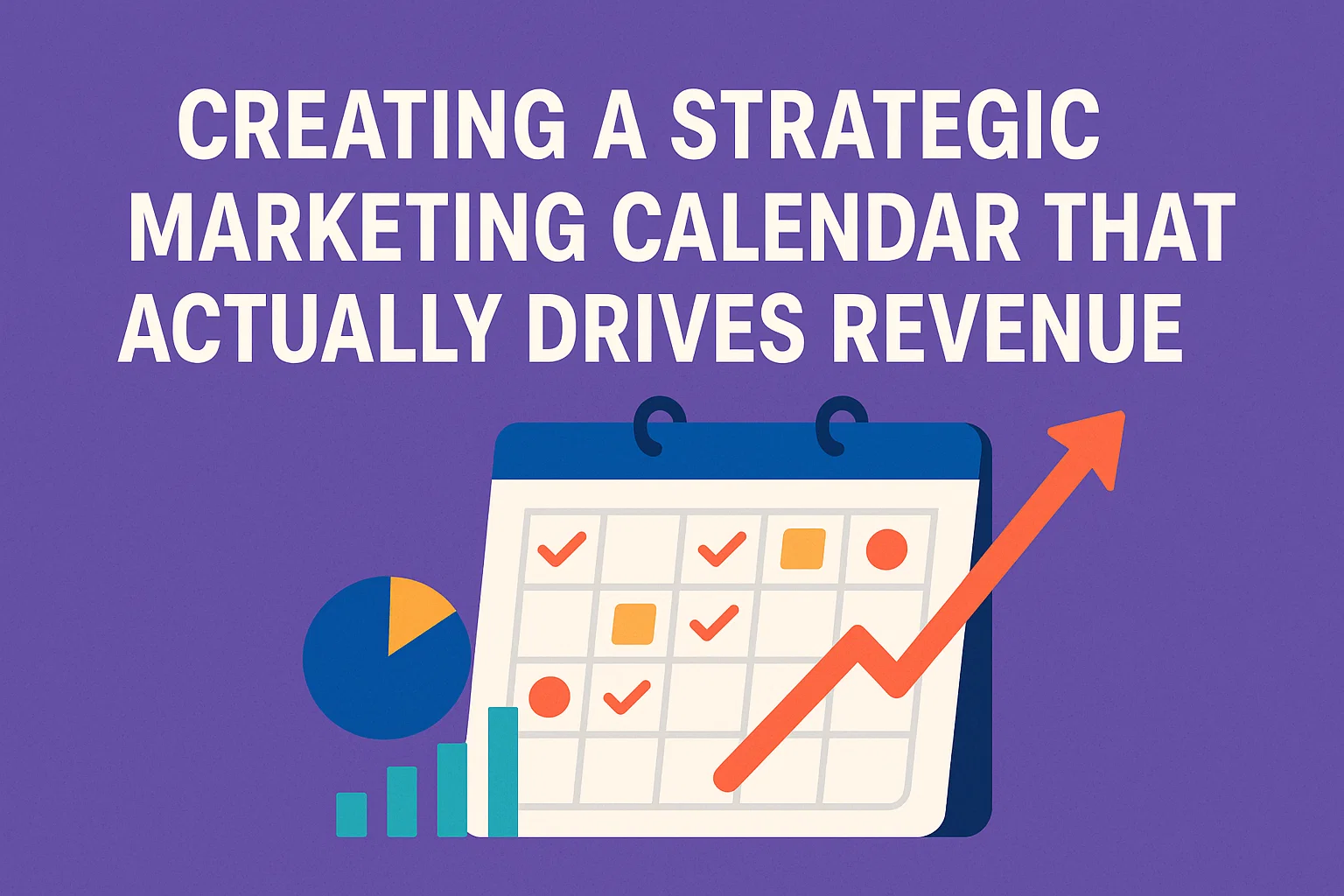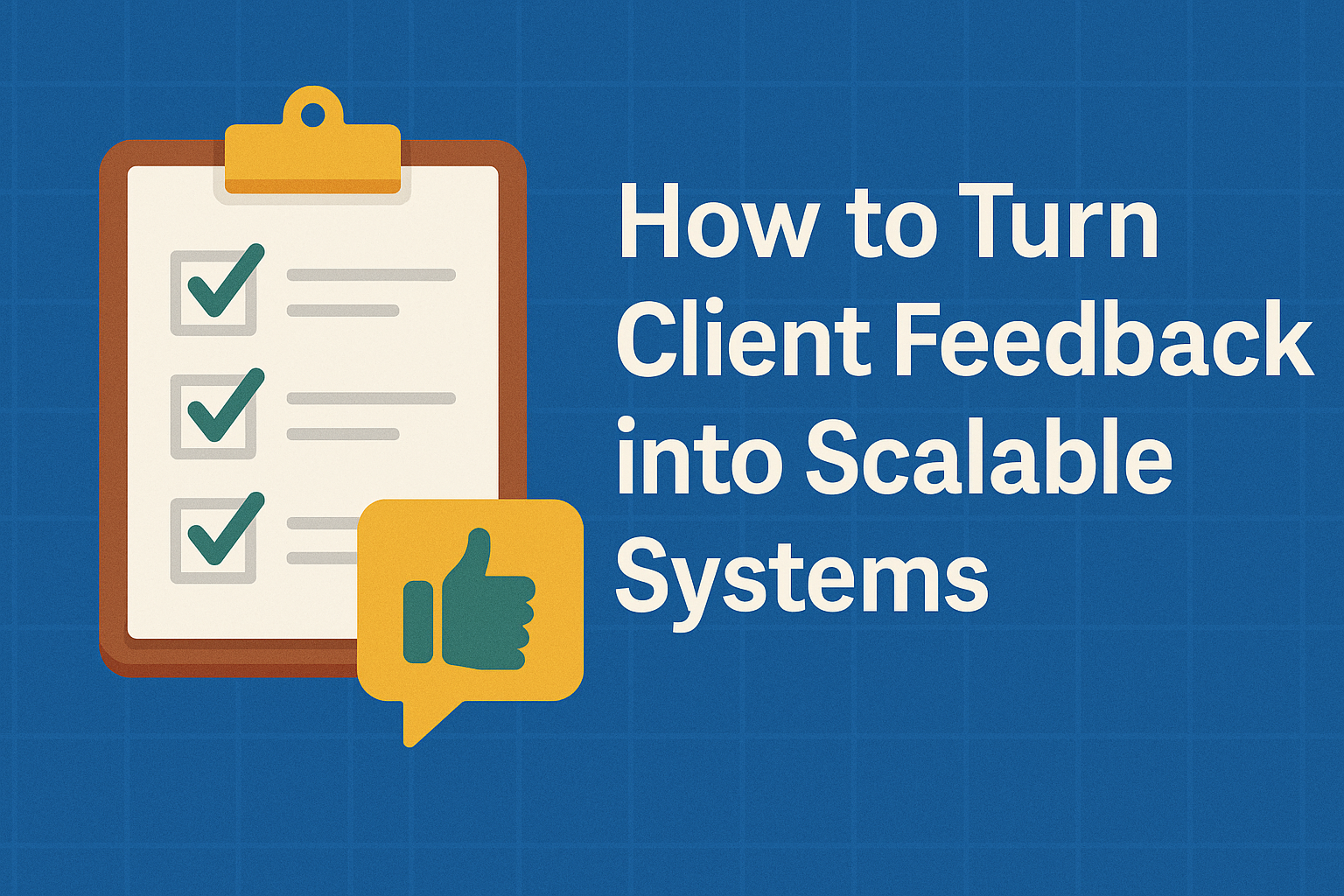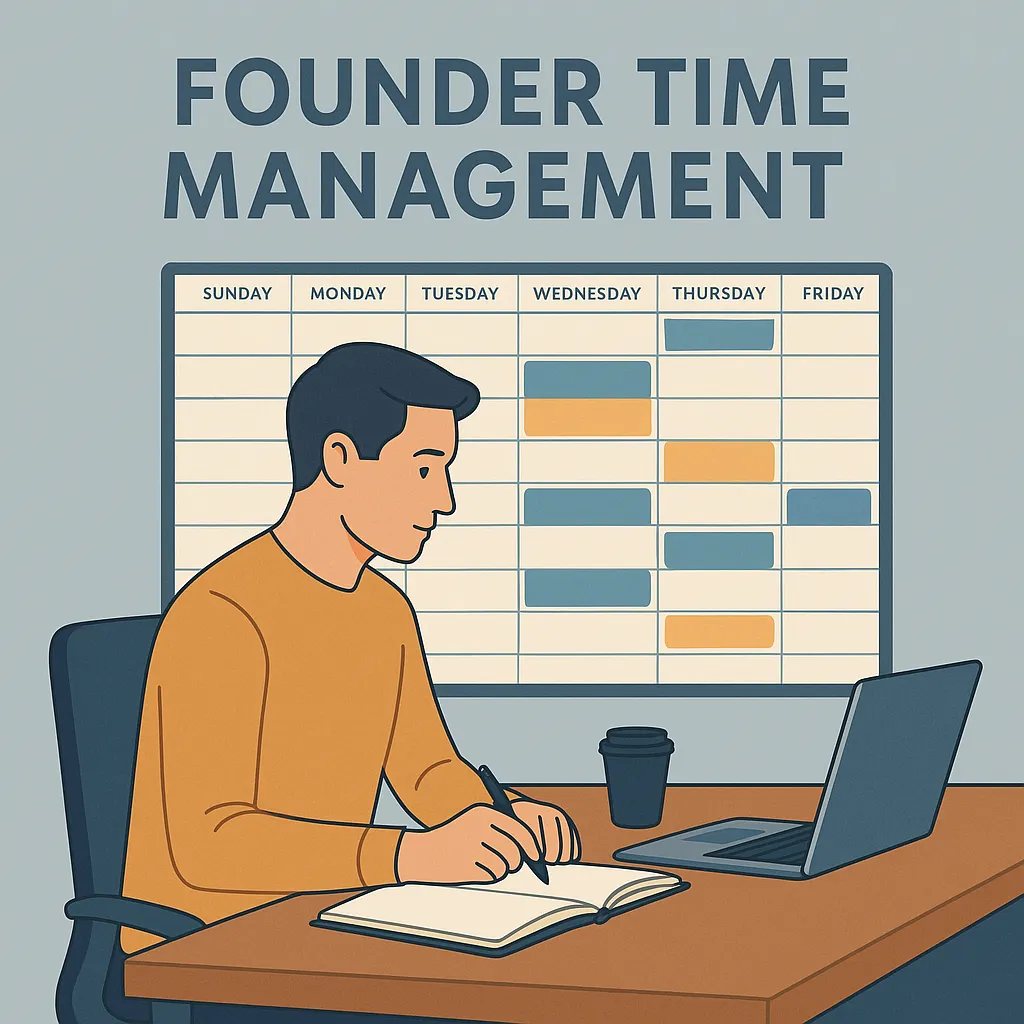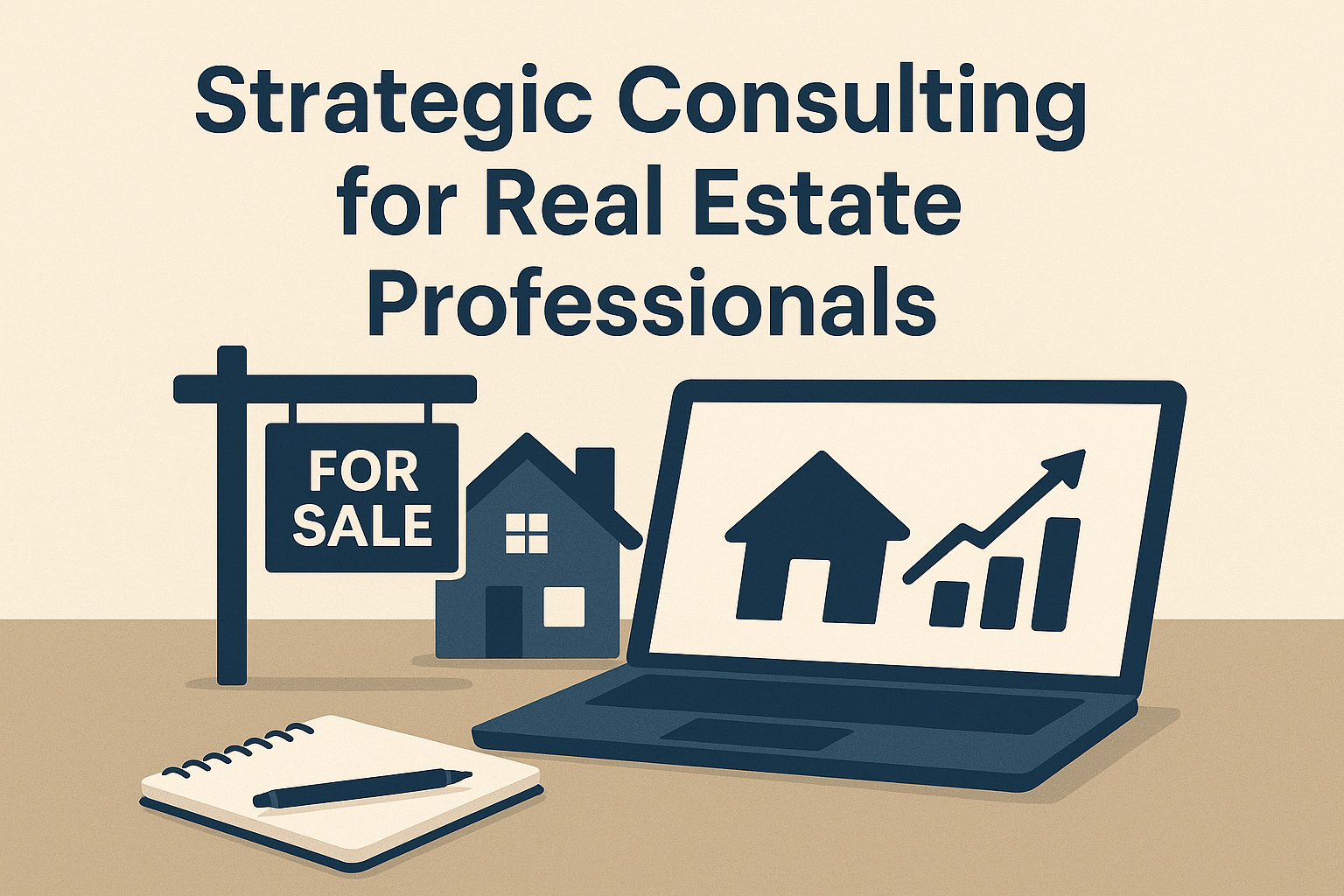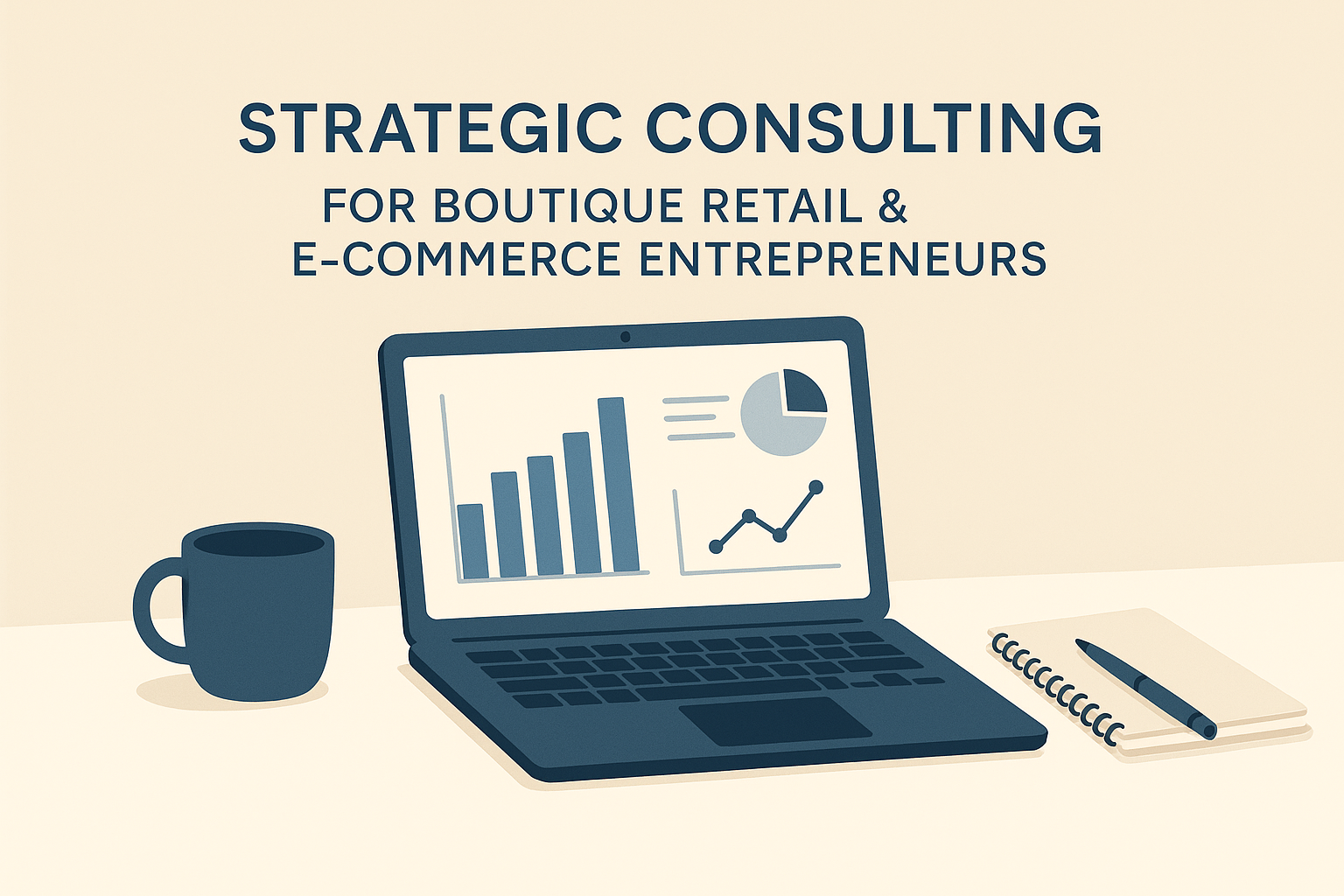Many small business owners treat their marketing calendar like a box-checking exercise — promotions, social posts, and campaigns crammed into a spreadsheet or tool with little connection to actual revenue goals. But done right, your marketing calendar can become a powerful strategic engine — one that aligns daily marketing actions with long-term business outcomes.
In this article, we’ll show you how to build a marketing calendar that goes beyond busywork and helps you focus on what actually moves the needle. You’ll walk away with a practical structure, real-world examples, and the clarity to turn your calendar into a true revenue roadmap.
Why Most Marketing Calendars Fall Flat
- Disconnected from business goals: Content and campaigns are often planned in isolation from sales targets, product launches, or seasonality.
- Overloaded with tactics: Many calendars become wish lists of activity instead of strategic plans tied to capacity and impact.
- Lack of clear messaging: Without a defined theme or customer journey, content feels scattered or repetitive.
If your calendar isn’t helping you grow — it’s time to rethink how it’s built.
Step 1: Anchor to Revenue and Growth Goals
Before you plan a single post, promotion, or launch, clarify these three things:
- Your quarterly revenue targets – What products or services are responsible for hitting those numbers?
- Primary growth objectives – Are you focused on lead generation, nurturing, or converting existing leads?
- Sales cycles and seasonality – When are your customers most likely to buy? Are there key inflection points like holidays, industry events, or internal launches?
This context turns your calendar into a strategy map — not just a schedule. Additionally, consider how macroeconomic trends, competitor launches, or shifting customer behavior might impact timing. Strategic foresight can keep your marketing calendar relevant even amid disruption.
Pro Tip: Sync with your sales and customer success teams each quarter. Their insights can reveal hidden opportunities and keep your campaigns grounded in customer reality.
Step 2: Build a Monthly Campaign Structure
Rather than scattering unrelated content, group your efforts into monthly or bi-monthly campaigns, each focused on a specific offer, audience, or outcome.
Example Monthly Theme Structure:
- January: New Year planning – promote strategic planning sessions
- February: Retention – nurture your best customers with referral incentives
- March: Lead generation – run a free webinar or downloadable guide
- April: Spring promotions – offer seasonal discounts or early access
- May: Educational content – publish how-to content and video series
- June: Mid-year check-ins – promote assessments or progress audits
Each campaign should include aligned assets: emails, blog posts, social media, and maybe paid ads — all pointing to a specific conversion goal.
Bonus Tip: Add internal milestones to each campaign. For example: draft deadline, design completion, review meeting, and launch date. This keeps cross-functional teams in sync and avoids last-minute scrambles.
Step 3: Prioritize Content That Converts
Don’t just fill your calendar with feel-good content. Prioritize pieces that drive:
- Lead capture – e.g., checklists, webinars, case studies with CTAs
- Sales enablement – content that answers objections or reinforces value
- Authority building – consistent thought leadership through blogs, videos, or social
High-conversion content often includes a clear narrative, strong social proof, and a frictionless path to the next step (e.g., book a call, download a resource, or sign up). When planning your calendar, label content types accordingly and review your funnel to ensure you’re supporting buyers at each stage.
Consider repurposing high-performing content. A webinar can become a blog series, a blog can feed social posts, and testimonials can be used in email campaigns. This multiplies the ROI of each asset without doubling your effort.
Step 4: Assign Owners and Deadlines
Execution is where many calendars die. Assign each element a clear:
- Owner – internal or outsourced
- Due date – for drafts and final delivery
- Channel – where and how it’s being distributed
We recommend using a shared calendar or project management tool with weekly review checkpoints. The more visibility your team has, the more accountable (and flexible) you can be.
Common Pitfall: Relying on one person to “own marketing.” Even if you’re small, divide responsibilities between content creation, editing, publishing, and analysis. This ensures nothing slips through the cracks and builds operational resilience as you scale.
Step 5: Review and Optimize Monthly
A calendar isn’t set-it-and-forget-it. Each month, assess:
- What campaigns drove the most leads or sales?
- Which content got the most engagement?
- What deadlines or handoffs were missed?
Use UTM tracking, landing page analytics, and campaign dashboards to gather performance insights. Don’t just look at vanity metrics — track the full buyer journey from awareness to action. Then, adjust your calendar accordingly. If webinars are underperforming but guides are converting, shift your energy toward what’s working.
Step 6: Integrate with Other Business Functions
Your marketing calendar shouldn’t live in a silo. Integrate it with:
- Sales: Align on timing of promotions and sales enablement content
- Product/Services: Coordinate around launches, updates, or seasonal services
- Customer success: Share retention campaigns and gather customer language
When everyone’s rowing in the same direction, your campaigns feel more cohesive — and your messaging carries greater weight.
Step 7: Use Themes to Build Brand Consistency
Campaign themes aren’t just about logistics — they’re a powerful tool for shaping perception. For example, dedicating a month to “Resilience in Business” gives your brand a voice around leadership, grit, and problem-solving. This makes your marketing more than promotional — it becomes purposeful.
Try planning quarterly themes that reflect your brand’s values and customer aspirations. Then map content accordingly. This provides creative direction and helps your team stay inspired and aligned.
Bonus: Keep a Strategic “Backlog”
As new ideas pop up — seasonal topics, trending content formats, potential collaborations — store them in a “backlog” tab of your calendar. Revisit it during planning cycles so your strategy stays focused but flexible. This also creates a content reserve for unexpected opportunities or quiet periods.
Marketing Calendar Tools to Consider
You don’t need fancy software to get started — but having the right tools helps streamline collaboration and consistency. Some favorites include:
- Google Sheets or Airtable: Great for visibility and cross-functional planning
- Asana, Trello, or ClickUp: Best for workflow management and task delegation
- CoSchedule or Notion: Content-centric tools with editorial calendar features
Pick a tool your team will actually use. Simplicity beats sophistication when it comes to execution.
Your Marketing Calendar Should Make You Money
A strategic marketing calendar isn’t just a nice-to-have. It’s one of the most practical ways to align your marketing efforts with your revenue goals. By focusing on outcomes first, creating campaign structures, and embedding accountability, you turn marketing from chaos into clarity — and activity into results.
If you want a marketing calendar that actually drives revenue — not just noise — you have to plan like a strategist and execute like a pro.
Need help mapping your calendar to revenue? Let’s build it together. Book a free discovery call to design a strategy that scales with your goals.



